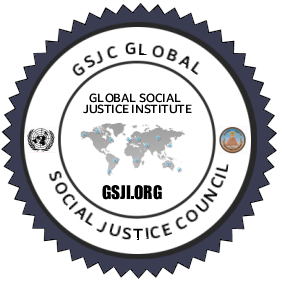GLOBAL SOCIAL JUSTICE INSTITUTE
a. The Universal Declaration of Human Rights and expression; the right to education, freedom of thought, conscience and religion; and the right to freedom
from torture and degrading treatment. These inherent rights are to be enjoyed by every man, woman and child
throughout the world, as well as by all groups in society.
| ||
Virus Justice Italian Freedom Day J23 History of Racism Book-HR Join Commission Ethics Badges Site Map Education Policy Agenda Top Social Justice Issues Anti Slavery Book Truth and Justice Commission USA Ethnic Justice Truth and Justice Commission * Anti Slavery Society - Election Intrigrity George Mentz Colorado Springs Coronavirus Biden Fault Negligence |
Accreditation Bodies: www.GAFM.com * www.GAFM.org * www.CertifiedProjectManager.eu * www.AAFM.org * Certified Project Manager * Certified e-Commerce Consultant * Royal Law Society * Royal Business Society * Royal Business College * Royal Fellows * Royal Economics Academy * Oxford Law School * AAFM * Certified International Project Manager *

